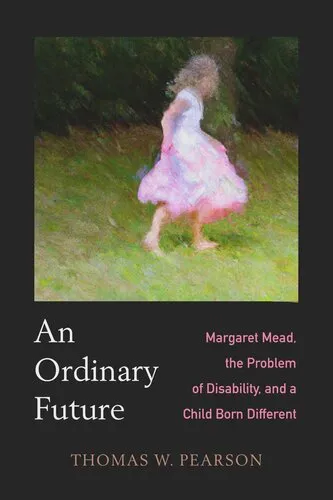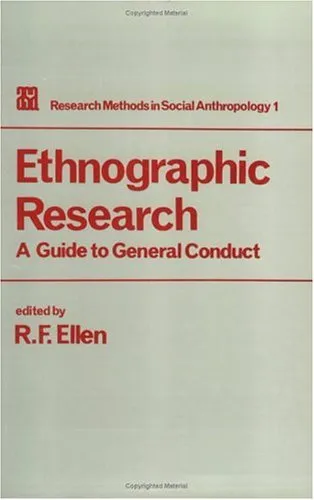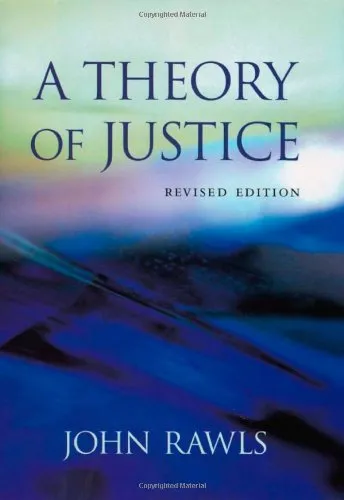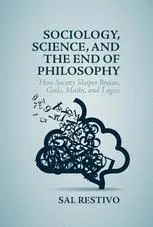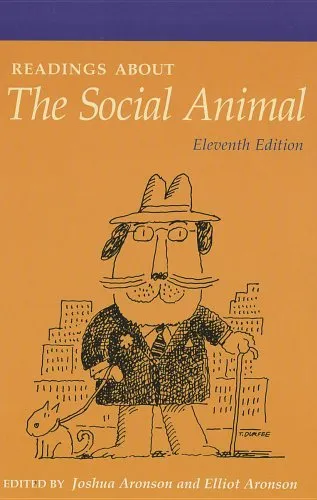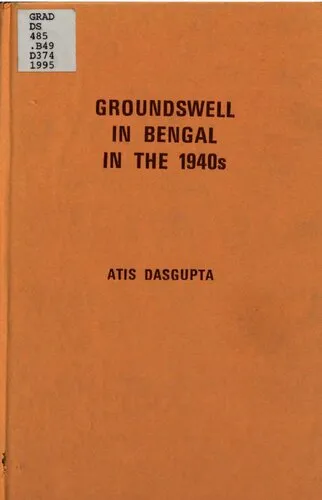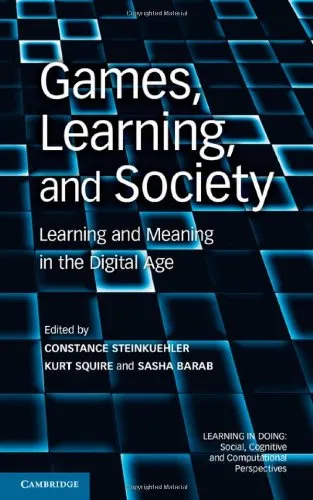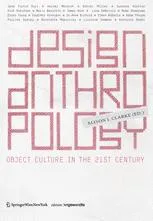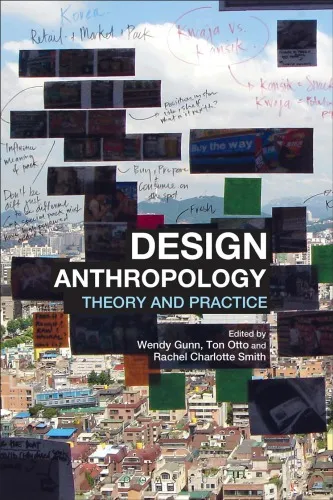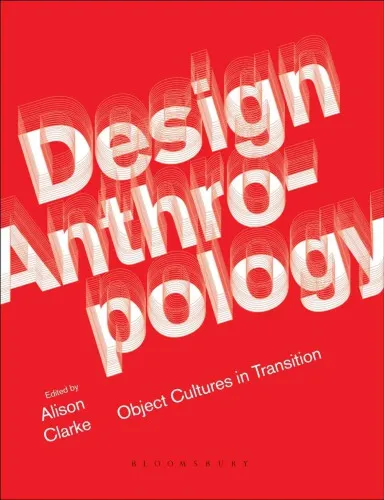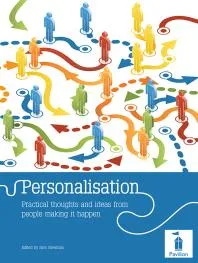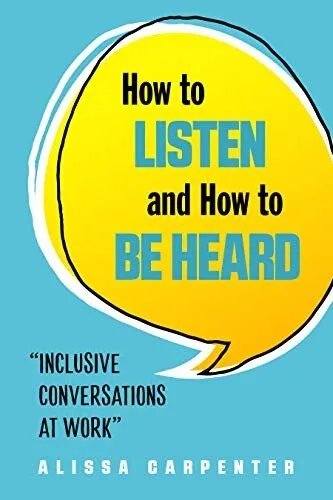An Ordinary Future: Margaret Mead, the Problem of Disability, and a Child Born Different
4.5
بر اساس نظر کاربران

شما میتونید سوالاتتون در باره کتاب رو از هوش مصنوعیش بعد از ورود بپرسید
هر دانلود یا پرسش از هوش مصنوعی 2 امتیاز لازم دارد، برای بدست آوردن امتیاز رایگان، به صفحه ی راهنمای امتیازات سر بزنید و یک سری کار ارزشمند انجام بدینکتاب های مرتبط:
معرفی کتاب "An Ordinary Future: Margaret Mead, the Problem of Disability, and a Child Born Different"
کتاب "An Ordinary Future" اثری برجسته از 'Thomas W Pearson' است که مفاهیم پیچیده و حساس مرتبط با گفتمان Disability را با درکی عمیق و روانشناسانه تحلیل میکند. این کتاب، علاوه بر بررسی دیدگاههای مارگارت مید، به طور خاص به موضوع تولد کودکی با تفاوتهای زیستی میپردازد و پرسشهایی بنیادین درباره آینده انسانی مطرح میکند.
خلاصهای از محتوا
این کتاب سفری است به درون فلسفه، انسانشناسی و علم مدرن که با روایت شخصی نویسنده و تجربههایش درباره تفاوتها و Disability همراه میشود. نویسنده با تکیه بر آثار مارگارت مید، دیدگاههای فرهنگی و علمی را درباره مسائلی که حول هویت و تعلق شکل گرفتهاند به چالش میکشد. او توضیح میدهد که چگونه جوامع مختلف، بر اساس مفاهیمی مانند تفاوت و عادی بودن، عملکردهای متفاوتی از پذیرش یا طرد افراد بر اساس شرایط جسمانی یا ذهنی آنان دارند.
نویسنده همچنین داستان خانوادهای را بیان میکند که با چالشهای تولد یک کودک "متفاوت" روبروست. این کودک نمادی از تغییر و آینده است؛ نویسنده از این فرصت استفاده میکند تا درباره چگونگی طراحی "آیندهای عادی" سوال کند که در آن همه افراد، بدون استثنا، بخشی از جامعه باشند.
نکات کلیدی
- مروری بر تأثیر مارگارت مید در گفتمان Disability و جامعهشناسی تطبیقی.
- تحلیل چگونگی پردازش تفاوتها در جوامع مدرن و سنتی.
- طرح مفهوم "آینده عادی" و نگاه نقادانه به هنجارهای اجتماعی.
- روایتی انسانی و نزدیک از مواجهه با چالشهای زندگی یک کودک متفاوت.
- ادغام روایت شخصی نویسنده با مفاهیم علمی و انسانشناسی.
جملات معروف از کتاب
"Seeking an ordinary future is not about conformity; it is about reimagining the boundaries of inclusion."
"Disability is not a limitation of the individual; it is often a limitation of societal imagination."
"Margaret Mead taught us to question the unquestioned, and the treatment of difference remains deeply unquestioned even today."
چرا این کتاب مهم است؟
این کتاب نه تنها یک بررسی علمی درباره Disability است، بلکه یک دعوت برای تغییر دیدگاهها و ساختن جهانی انسانیتر است که در آن، همه افراد، بدون در نظر گرفتن تفاوتهای ظاهری یا ژنتیکی، بتوانند یک زندگی معنادار داشته باشند. از آنجا که این کتاب دغدغههای بسیار انسانی را با تحلیلهای علمی ترکیب کرده است، توانسته به عنوان یک منبع ارزشمند برای کسانی که در زمینههای انسانشناسی، روانشناسی، مطالعات فرهنگی و اجتماعی فعالیت میکنند، نقش مهمی ایفا کند.
علاوه بر این، کتاب "An Ordinary Future" ما را به تفکر درباره شیوه تعامل جامعه با موضوعاتی چون معلولیت، آینده محوری و پذیرش تفاوتها وامیدارد و از ما میخواهد تا در دنیای کنونی، چه به عنوان فرد و چه به عنوان جامعه، نقشآفرین نگاه انسانیتر به زندگی باشیم.
Introduction to "An Ordinary Future: Margaret Mead, the Problem of Disability, and a Child Born Different"
In modern society, disability is often viewed as a deviation from the norm, a challenge to conventional ways of thinking about human potential, development, and societal roles. My book, An Ordinary Future: Margaret Mead, the Problem of Disability, and a Child Born Different, delves deeply into these questions by exploring disability through the lens of history, anthropology, and the life of a single child who disrupts conventional assumptions about what it means to live an "ordinary" life. This is not merely a historical account or a purely academic study—it is a narrative that resonates through the past, present, and future of humanity.
Detailed Summary of the Book
An Ordinary Future is built on a foundation of critical inquiry, beginning with an exploration of the work of Margaret Mead, the renowned anthropologist whose life's work focused on challenging normative assumptions about culture, gender, and human experience. Mead's perspective forms the framework through which we confront the "problem of disability." By revisiting Mead's ideas, we are reminded of her belief in limitless human adaptability and the social construction of norms. The book examines how Mead's work can help us reimagine disability not as a deficit but as a form of human diversity.
The narrative pivots around the story of a child born with a genetic anomaly, a "difference" that places them on the margins of medical and societal expectations. Rather than framing this child's life as a tragedy or inspiration, the book calls into question the very narratives we impose on such lives. Through in-depth research, personal stories, and socio-cultural analysis, it invites readers to reconsider what we mean by concepts like "normalcy," "progress," and "potential."
Spanning several disciplines—including anthropology, disability studies, bioethics, and the history of science—An Ordinary Future challenges readers to think critically about how we construct and respond to human difference. Can we truly imagine a world in which disability is not erased or "fixed" but valued as an essential element of human diversity? And what would such a world demand of our societies, policies, and educational systems? These are the pressing questions that form the heart of the book.
Key Takeaways
- Disability is not an inherent flaw or limitation but a product of cultural, social, and historical norms that prioritize certain ways of being over others.
- By reexamining the work of Margaret Mead, we can find tools to challenge societal expectations around normalcy and embrace a more inclusive vision of human diversity.
- The lived experience of disability has much to teach us about resilience, adaptation, and how humans relate to one another in meaningful ways.
- Creating a more inclusive future requires not just policy changes but a fundamental shift in how we think about human potential and worth.
Famous Quotes from the Book
"The measure of a society is not in its ability to eliminate difference but in how it learns to live with, and even celebrate, the diverse forms life can take."
"Margaret Mead once cautioned us against rigid thinking, stating that we must be prepared to redefine what is 'normal' in every generation. This book asks what such redefinition might look like if disability were seen not as a problem, but as a possibility."
"A truly ordinary future isn't one where all differences are erased; it is one where differences coexist in a framework of mutual respect and interdependence."
Why This Book Matters
An Ordinary Future matters because it addresses universally relevant issues surrounding how we as individuals, families, and societies construct meaning around human difference. In a world increasingly shaped by technological advancements in genetics and medicine, the temptation to "fix" or eliminate disability is growing stronger. This book is a call to resist such reductionist thinking. Instead, it advocates for an ethical and empathetic approach to disability—one that values diversity as a cornerstone of human identity rather than seeing it as a problem to be solved.
Moreover, this book is an invitation to push boundaries—not just academically or intellectually, but emotionally and socially. It asks readers to confront their assumptions, biases, and fears about disability and to envision what a more inclusive world might look like. By grounding these questions in a mix of historical analysis, cultural critique, and personal narrative, An Ordinary Future achieves something rare: it bridges the gap between theory and practice, shedding light on how we might collectively work toward a better future.
Simply put, this book is for anyone who wants to rethink what it means to be human.
دانلود رایگان مستقیم
شما میتونید سوالاتتون در باره کتاب رو از هوش مصنوعیش بعد از ورود بپرسید
دسترسی به کتابها از طریق پلتفرمهای قانونی و کتابخانههای عمومی نه تنها از حقوق نویسندگان و ناشران حمایت میکند، بلکه به پایداری فرهنگ کتابخوانی نیز کمک میرساند. پیش از دانلود، لحظهای به بررسی این گزینهها فکر کنید.
این کتاب رو در پلتفرم های دیگه ببینید
WorldCat به شما کمک میکنه تا کتاب ها رو در کتابخانه های سراسر دنیا پیدا کنید
امتیازها، نظرات تخصصی و صحبت ها درباره کتاب را در Goodreads ببینید
کتابهای کمیاب یا دست دوم را در AbeBooks پیدا کنید و بخرید
1464
بازدید4.5
امتیاز0
نظر98%
رضایتنظرات:
4.5
بر اساس 0 نظر کاربران
Questions & Answers
Ask questions about this book or help others by answering
No questions yet. Be the first to ask!
